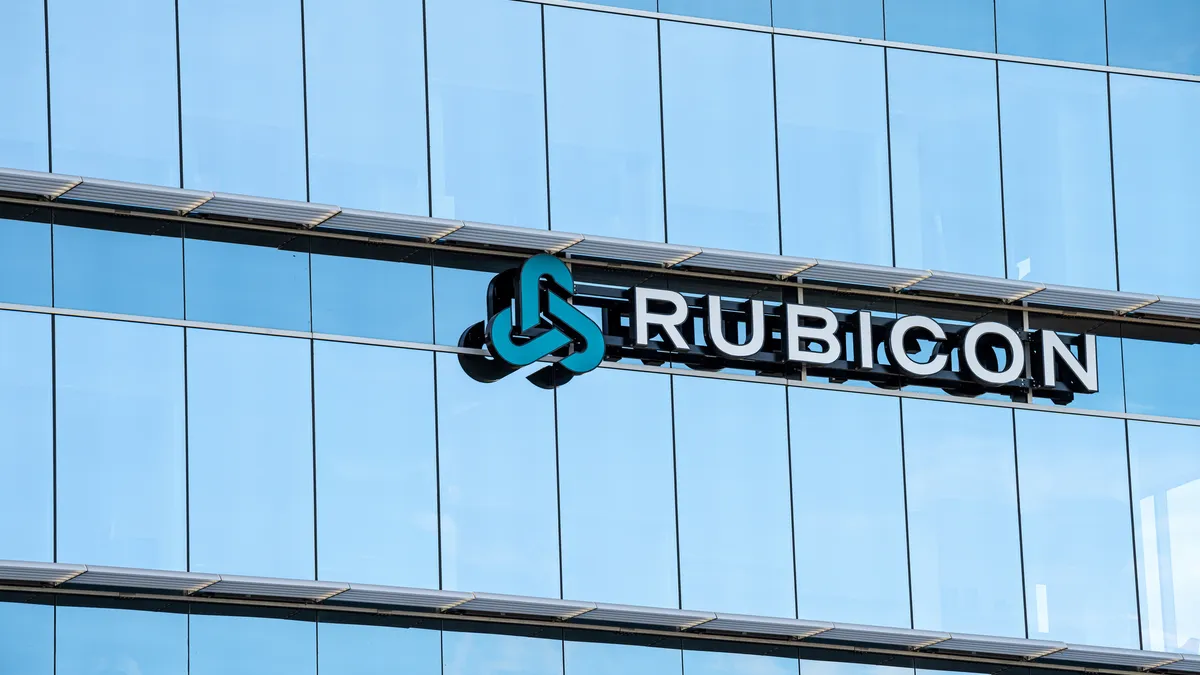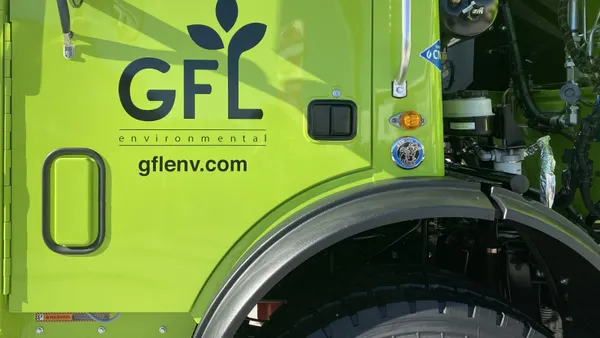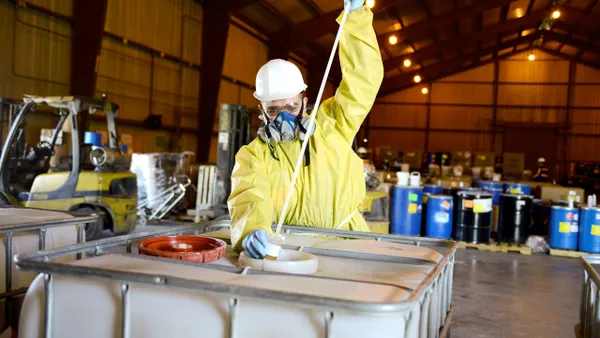- Refreshed vision: In Rubicon Technologies’ first earnings call since going public and seeing its founder step down, CEO Phil Rodoni said on Wednesday the company plans to “establish profitability as the core tenet of our strategy and corporate culture going forward at all levels of the organization.” Rubicon also announced Kevin Schubert, formerly chief development officer, as its new president.
- Margins: Rodoni said the company, which provides collection services via third-party haulers, is working to improve its margins by controlling costs and offering adjacent recycling services for streams such as pallets, cardboard, organics and scrap metal to current clients. Price increases can be expected in some cases to help offset inflationary factors. Rubicon is also reevaluating less profitable accounts.
- National accounts: Rodoni noted the company had grown by offering “lower margin-based products” to national accounts and signaled that could be shifting. At the same time, Rubicon touted a recent two-year extension of its contract with Walmart, which includes service across 70 company distribution centers and an estimated 3,500 retail stores.
- Cost cutting: Rubicon is focused on eliminating “redundancies” within the company and taking a close look at expenses to reduce operating costs “substantially during the next year.” This will also involve “strict capital discipline for future investments,” as Rodoni said some prior strategies “have not always yielded the highest returns.” He said the company remains committed to product investments that can improve efficiency.
- Turning the corner: Rubicon reported high expenses this year on technology investments, and Chief Financial Officer Jevan Anderson noted recent onboarding costs from a “very significant launch” with a new customer. “The nice thing is we've made a lot of those investments already,” said Schubert, adding Rubicon is now “reaping the benefits” going forward.
- City software: While software subscriptions with municipal clients account for a smaller portion of the company’s revenue, Rubicon anticipates further growth. Executives touted new features to route and track snow plows, similar to what the company offers for collection trucks, and Rodoni said this high-margin part of the business is “dramatically expanding.”
- M&A: Part of Rubicon’s strategy ahead of going public was to scale rapidly in the coming years by consolidating the relatively fragmented market of waste brokers. While Rodoni said Rubicon still has a “robust pipeline,” and "if there's a deal that's available to us that we like we'll certainly pursue it,” the company is primarily focused on near-term profitability.
- Liquidity: Anderson described Rubicon as “short on the cash front,” with a reported $4.46 million on hand at the end of the quarter and approximately $30 million available from an existing line of credit. “We're in the midst of talking to folks, financing sources on the equity and on the debt side to restructure the debt as well as bring in some additional equity to provide some additional liquidity here,” he said.
- Looking ahead: Rubicon said further details on its profitability strategy will be forthcoming, but executives repeatedly said work is underway to boost earnings. “We're already pushing a number of initiatives forward across the organization that are going to meaningfully increase our profitability, increase our [earnings before interest, depreciation, taxes and amortization],” said Schubert. “We would expect that to change significantly as we go forward.”

Rubicon pledges ‘progress to profitability’ and shares plans to grow company’s earnings potential
In the company’s first earnings call since going public and seeing its founder step down, CEO Phil Rodoni named “profitability as the core tenet of our strategy and corporate culture going forward.”

Recommended Reading
- Rubicon’s stock has struggled since going public. Is the SPAC trend to blame? By Cole Rosengren • Oct. 21, 2022
- Q3 earnings results for major waste and recycling companies By • Updated Dec. 1, 2022










